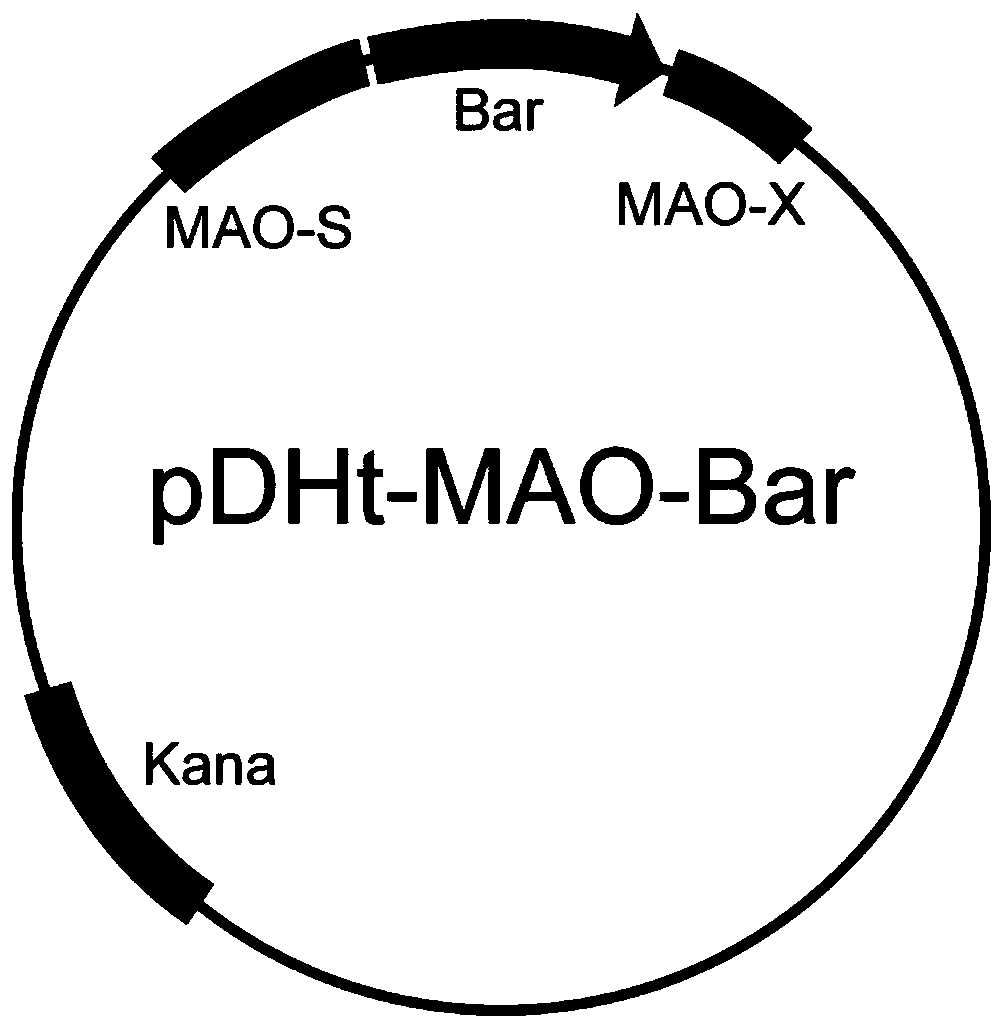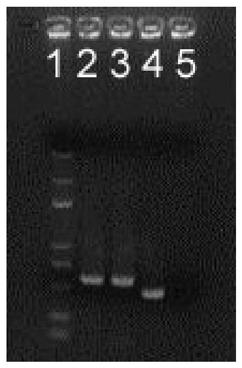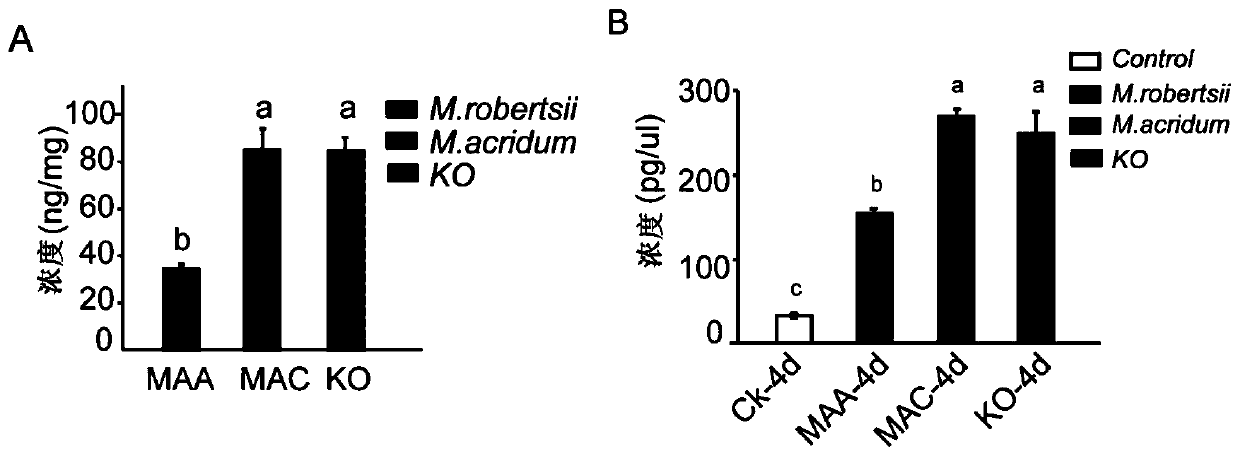Recombinant broad-spectrum metarhizium anisopliae and its preparation method and application
A Metarhizium anisopliae, broad-spectrum technology, applied in the field of transgenic strains and their preparation, can solve the problems of long lethal time, danger, unsatisfactory effect, etc., and achieve the effects of increasing concentration, good biological safety, and improving insecticidal efficiency.
- Summary
- Abstract
- Description
- Claims
- Application Information
AI Technical Summary
Problems solved by technology
Method used
Image
Examples
Embodiment 1
[0044] Example 1 Preparation of recombinant broad-spectrum Metarhizium anisopliae
[0045] In this example, the knockout of the monoamine oxidase gene (denoted as MAA_03753) in the broad-spectrum Metarhizium anisopliae (denoted as MAA) is used as an example to illustrate. The gene bank accession number of MAA_03753 is NW_011942171.1, monoamineoxidase[EC:1.4.3.4 ], and the specific sequence is shown in SEQ ID NO: 1. In this embodiment, the broad-spectrum Metarhizium roberts is not limited, and other broad-spectrum Metarhizium anisopliae with monoamine oxidase, such as Metarhizium chafers, etc., are also used. In this embodiment, the type of plasmid is not limited, as long as it contains Bar gene and / or Ben gene. For example, the pDHt-Bar plasmid can be used, and the pDHt-Ben plasmid can also be used. In the following, the pDHt-Bar plasmid is taken as an example for description.
[0046] 1. Knockout plasmid construction of MAA_03753
[0047] Primers, MAA_03753Fs and MAA_0375...
Embodiment 2
[0079] Embodiment 2 Determination of tryptamine content in recombinant broad-spectrum Metarhizium anisopliae
[0080] Wild-type MAA, recombinant MAA-KO screened in Example 1 and wild-type obligate bacterium Metarhizium anisopliae (referred to as MAC) were cultured on PDA plates respectively. After culturing for 15 days, the spores of wild-type MAA, recombinant MAA-KO and MAC were inoculated into L15 medium containing hemolymph of migratory locusts (preparation of hemolymph of migratory locusts: added to each 1 mL of L15 medium. 200 μL of fresh hemolymph, filtered with a 0.22 μm filter. When culturing mycelium, add 100 μL of the above prepared hemolymph to each ml of L15 medium), and cultivate it in a dark incubator at 28°C for 6 days. After Mycelia were collected and treated with ddH 2 The medium was washed twice with O and then freeze-dried at -20°C. Weigh 1 mg of dried mycelia, lyse with 100 μL of 0.1 M perchloric acid, grind, 5200 g, 4 °C, centrifuge for 30 min, take the ...
Embodiment 3
[0094] Example 3 Detection of tryptamine affecting ROS generation
[0095] The scattered migratory locust males three days after eclosion were randomly and equally divided into three groups, which were marked as control group Ck-4d, wild-type group MAA-4d and recombinant mutant group KO-4d. The type group was infected with wild-type MAA, and the mutant group was infected with the MAA-KO screened in Example 1. After 4 days, the locust hemolymph was taken in 500 μL of L15 medium, and centrifuged rapidly at 300 rpm, 4 °C, for 10 After 10 minutes, the supernatant was poured off, and 500 μL of L15 medium containing 0.1 μM Mitosox Red (red fluorescent probe) was added. After incubation at 37°C for 10 min in the dark, the supernatant was removed by centrifugation, and the cells were suspended in L15 medium and put on the machine.
[0096] Detector: Beckman CytoFLEX;
[0097] Detection channel: PE;
[0098] 8000 cells were collected and the proportion of fluorescent cells was counte...
PUM
 Login to View More
Login to View More Abstract
Description
Claims
Application Information
 Login to View More
Login to View More - R&D
- Intellectual Property
- Life Sciences
- Materials
- Tech Scout
- Unparalleled Data Quality
- Higher Quality Content
- 60% Fewer Hallucinations
Browse by: Latest US Patents, China's latest patents, Technical Efficacy Thesaurus, Application Domain, Technology Topic, Popular Technical Reports.
© 2025 PatSnap. All rights reserved.Legal|Privacy policy|Modern Slavery Act Transparency Statement|Sitemap|About US| Contact US: help@patsnap.com



